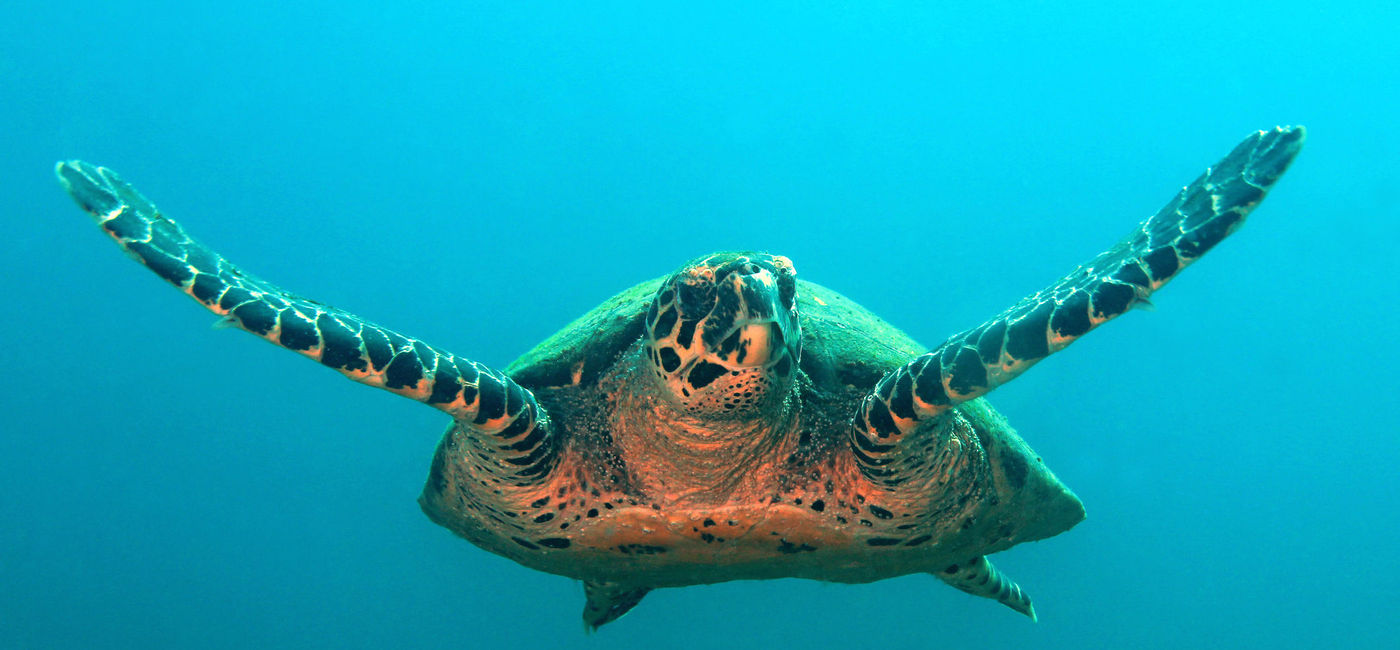Contributing to the Conservation of Endangered Sea Turtles While Visiting Panama

Five of the world’s seven sea turtle species call the country of Panama home.
Rich in diverse habitats and ecosystems, Panama’s geographic location between North and South America – and the Pacific Ocean and the Caribbean Sea – provides the ideal conditions for sea turtles to live and develop throughout their various stages of life.
That fact has triggered important conservation efforts throughout the popular Central American country, often led by local communities and well-known organizations such as the international non-profit Sea Turtle Conservancy and also Panama Wildlife Conservation.
Equally importantly, these efforts have led to more than 200 of Panama’s beaches now being the location of protected nesting sites for turtles.
This is important because nearly all of the world’s sea turtles are now classified as endangered. Worse still, three of the seven existing species are actually classified as critically endangered.
“Over the last 200 years, human activities have tipped the scales against the survival of these ancient mariners. Slaughtered for their eggs, meat, skin, and shells, sea turtles suffer from poaching and over-exploitation,” says the World Wildlife Fund.
The threatened or endangered turtles include the vulnerable loggerhead turtle (Caretta caretta), critically endangered hawksbills (Eretmochelys imbricata), endangered green (Chelonia mydas), vulnerable olive ridley (Lepidochelys olivacea), and vulnerable leatherback (Dermochelys coriacea).
Top Nesting and Conservation Sites
When visiting Panama you can learn more about these endangered sea creatures, enriching your knowledge and even collaborating in conservation efforts.
Visitors are able to witness firsthand the local conservation efforts being undertaken to protect these species and watch the babies take their first steps into the water.
It’s possible to watch and learn more about sea turtles in the following locations throughout Panama:
In Los Santos, along the Pacific coast, are some of the best nesting sites in the country, such as Isla Cañas and Playa La Marinera.
In the province of Veraguas is Coiba National Park in the Gulf of Chiriqui. This marine reserve and UNESCO World Heritage Site is home to a wide variety of birds, fish, iguanas and sea turtles, especially the hawksbill turtle, which forage for food there.
Also in Veraguas, the Mata Oscura Community has developed the Eco Ruta de la Tortuga, an initiative for the conservation of turtles in Panama and internationally.
In the Caribbean Sea, the province of Bocas del Toro is the nesting site of thousands of hawksbill and leatherback turtles. Two of the main nesting sites are Bluff Beach on Colon Island and in the Marine National Park of Bastimentos Island.
When to Visit
Sea turtle nesting season takes place annually in Panama between the July and January. The best time to observe the turtles nesting is at night, when the tide is low and the beach is calm.
Then at dawn, between 45 and 60 days later, baby turtles will make their appearance, hatching from shells and scrambling toward the sea for the first time. It is a beautiful natural event that you won’t soon forget.
How You Can Help When Visiting Panama
Beyond merely observing conservation programs, there are many ways you can actively help conserve these important and beautiful marine creatures.
Some of the options include volunteering on-site with organizations, donating money to support conservation programs, and “adopting” sea turtles, which involves providing a donation for a specific turtle.
